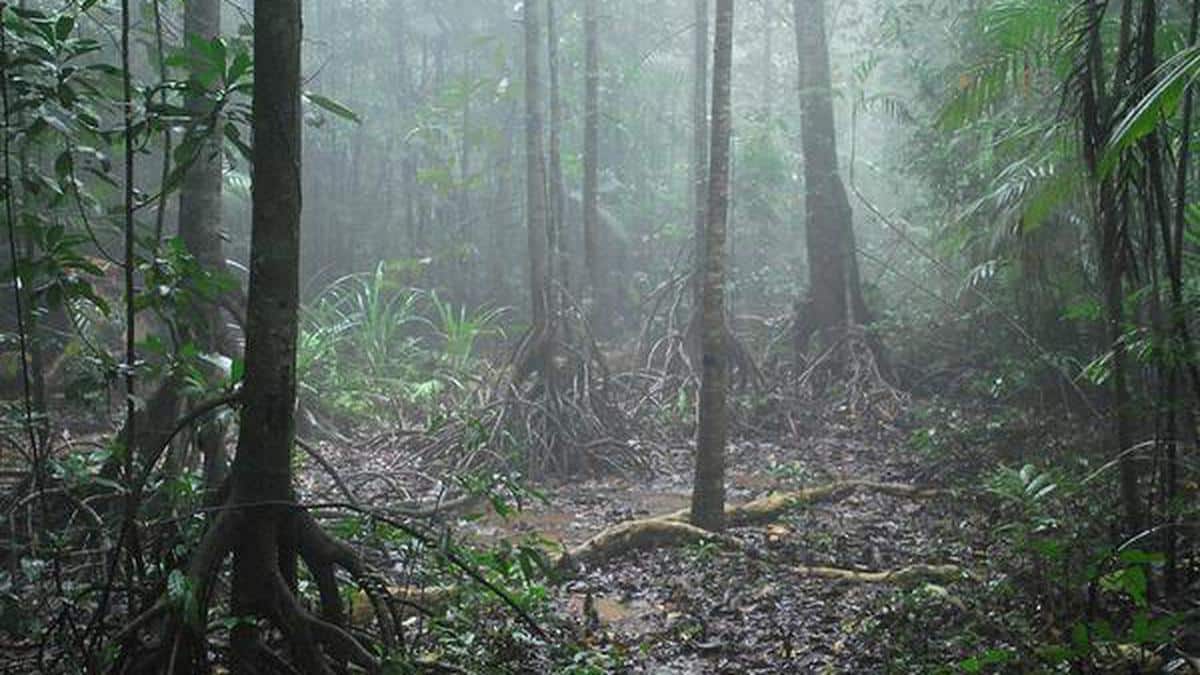About Myristica Swamps:
- These are freshwater swamps predominated by members of the Myristicaceae family.
- These forests are characterized by trees with large protruding roots jutting out of waterlogged soil which remains inundated throughout the year.
- They have evolved over millions of years and are comprised of old-growth trees.
- Geographical distribution: In India, these unique habitats occur in the Western Ghats and a smaller distribution exists in the Andaman and Nicobar Islands.
- Climatic conditions: The formation of these swamps is dependent on abiotic conditions like the shape of the valley between the forested hills, the amount of rainfall a place receives (with an average of 3000 mm), and water availability throughout the year.
- Typically, Myristica swamps are seen next to rivers and help in retaining water and act as a sponge, ensuring perennial water availability.
- These swamps are home to many vertebrate and invertebrate faunal species. This is due to stable macroecological conditions like high humidity, moderate temperature, and macrohabitat availability.
Q1) What is a swamp?
A swamp is a type of wetland characterized by the presence of water-saturated soil and an abundance of vegetation. It is typically found in low-lying areas where water accumulates and drains slowly.
Last updated on June, 2025
→ UPSC Notification 2025 was released on 22nd January 2025.
→ UPSC Prelims Result 2025 is out now for the CSE held on 25 May 2025.
→ UPSC Prelims Question Paper 2025 and Unofficial Prelims Answer Key 2025 are available now.
→ UPSC Calendar 2026 is released on 15th May, 2025.
→ The UPSC Vacancy 2025 were released 1129, out of which 979 were for UPSC CSE and remaining 150 are for UPSC IFoS.
→ UPSC Mains 2025 will be conducted on 22nd August 2025.
→ UPSC Prelims 2026 will be conducted on 24th May, 2026 & UPSC Mains 2026 will be conducted on 21st August 2026.
→ The UPSC Selection Process is of 3 stages-Prelims, Mains and Interview.
→ UPSC Result 2024 is released with latest UPSC Marksheet 2024. Check Now!
→ UPSC Toppers List 2024 is released now. Shakti Dubey is UPSC AIR 1 2024 Topper.
→ Also check Best IAS Coaching in Delhi






















